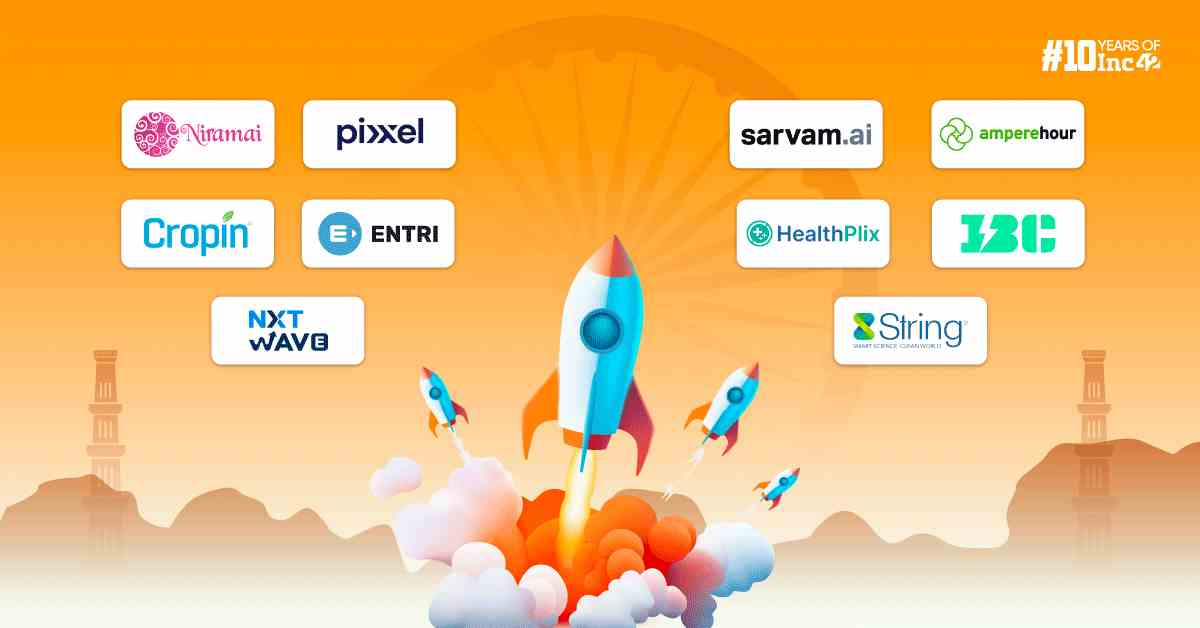Meet The 10 Indian Startups Which Made Into WEF’s Tech Pioneers List
At least ten Indian startups, including Pixxel, Niramai, and Sarvam AI, have made it into the World Economic Forum’s 2024 Technology Pioneers list, which highlights 100 leading tech companies from across 23 countries. These startups are leveraging new AI breakthroughs in fields such as clean energy, healthcare, biotechnology, space, and neurotechnology.
The Indian companies that made it into the list are Pixxel, Sarvam AI, AmpereHour Solar, Cropin, Entri HealthPlix, International Battery Company, Niramai, NxtWave, and String Bio. Notably, previously recognized companies in this list include successful heavyweights like Airbnb, Google, Kickstarter, and Spotify.
The 2024 Technology Pioneers cohort has the most representation from the largest entrepreneurship ecosystems in the world, the US and China, followed by India, which has more startups than ever before in this year’s cohort. “The 2024 cohort will contribute cutting-edge insights and expertise to the Forum’s global initiatives over the next two years and help scale their impact,” WEF said in a statement.
The list comprises nine space companies, four neurotechnology firms, and four clean technology startups, including AmpereHour and International Battery Company from India. Of the 100 technology companies that made the list, one-third of them were led by women CEOs.
Niramai Health Analytix, founded in 2016 by Geetha Manjunath, is innovating with an AI-based test for early-stage breast cancer detection that is affordable, portable, and non-invasive. Pixxel, founded in 2019 by Awais Ahmed and Kshitij Khandelwal in Bengaluru, is building a constellation of hyperspectral earth imaging satellites to provide insights to sectors like agriculture, mining, and environment, among others.
Sarvam AI, founded in July 2023 by AI4Bharat creators Vivek Raghavan and Pratyush Kumar in Bengaluru, aims to develop custom-made large language models (LLMs), specifically designed for India-centric use cases. AmpereHour, founded in 2017 by Ayush Misra, Harshal Thakur, Neehar Jathar, Rahul, and Shelke in Pune, builds hardware and software technology for mid to large-scale battery-based energy storage systems, creating dispatchable renewable energy plants.
Cropin, founded in 2010 by Krishna Kumar and Kunal Prasad in Hyderabad, is a SaaS-based agtech startup that helps farm-to-fork businesses digitize their operations and make informed decisions to enhance farming efficiency, productivity, and sustainability. Entri, founded in 2017 by Mohammed Hisamuddin and Rahul Ramesh in Pune, is a vernacular edtech startup offering learning and skill development programs in Indian languages.
HealthPlix, founded in 2014 by Raghuraj Sunder Raju and Sandeep Gudibanda in Bengaluru, allows doctors to create a full medical profile of their patients, advancing AI-powered electronic medical record systems. International Battery Company, founded in 2022 by Priyadarshi P in Sunnyvale, California, builds unique I-NMC Prismatic cells in India at its non-captive gigafactory, providing large-sized lithium-ion batteries for various segments.
NxtWave, founded in 2020 by Sashank Reddy Gujjula, Anupam Pedarla, and Rahul Attuluri in Hyderabad, offers AI-driven, vernacular-based coding courses enabling unemployed students to secure jobs. String Bio, founded in 2013 by Vinod Kumar and Dr. Ezhil Subbian in Bengaluru, manufactures raw materials for various sectors derived using a sustainable process, converting greenhouse gases into next-generation products.
The majority of these 10 startups are primarily AI-focused, reflecting the growing prominence of AI amid India’s evolving digital landscape. GenAI has surpassed mere automation to craft intelligent solutions enabling breakthroughs, attracting increased investor interest in recent times. Since 2019, over 100 startups in India have raised more than $600 million, fueling the growth of the Generative AI sector.
